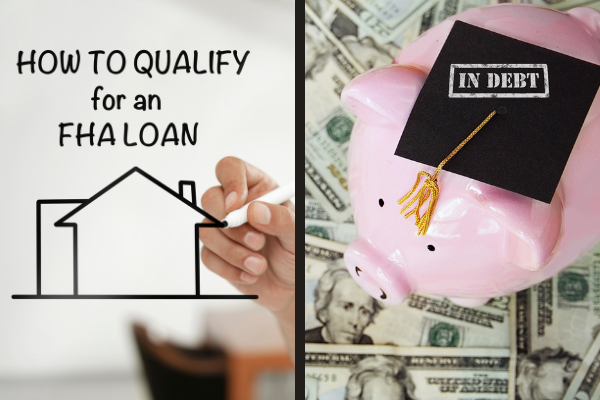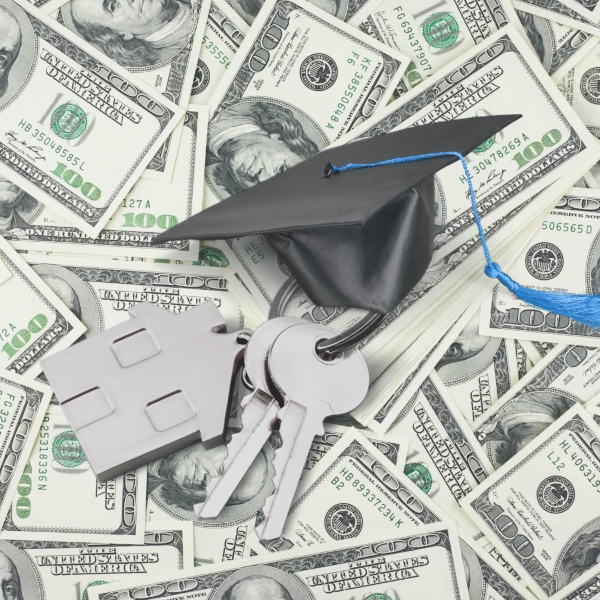Balancing Educational Debt with Homeownership Goals
 In the pursuit of the American dream, many individuals find themselves walking a tightrope between educational aspirations and the desire to own a home. The burden of student loan debt can often seem impossible, making the prospect of homeownership feel like a distant dream. With strategic planning and disciplined financial management, it’s possible to strike a balance between educational debt and homeownership goals. Here are a few effective strategies to help you navigate this delicate balancing act.
In the pursuit of the American dream, many individuals find themselves walking a tightrope between educational aspirations and the desire to own a home. The burden of student loan debt can often seem impossible, making the prospect of homeownership feel like a distant dream. With strategic planning and disciplined financial management, it’s possible to strike a balance between educational debt and homeownership goals. Here are a few effective strategies to help you navigate this delicate balancing act.
Understand Your Student Loan Landscape:
Before diving into homeownership, it’s crucial to have a comprehensive understanding of your student loan portfolio. Take stock of your outstanding balances, interest rates, and repayment terms. Knowing the specifics of your loans will empower you to make informed decisions about your financial future.
Create a Budget and Stick to It:
Budgeting is the foundation of financial success. Evaluate your income, expenses, and flexible spending. Allocate a portion of your income to student loan payments while setting aside savings for your future home. Adopting a disciplined budgeting approach will not only expedite your debt repayment but also help you accumulate a down payment for your future home.
Explore Loan Repayment Options:
Investigate various student loan repayment plans, such as income-driven repayment options. These plans can cap your monthly payments based on your income, making it more manageable to balance debt repayment with other financial goals. Additionally, some forgiveness programs may alleviate a portion of your student loan burden over time.
Prioritize High-Interest Debts:
If you have multiple debts, prioritize high-interest loans. By tackling these first, you’ll save money on interest payments in the long run. This strategy can free up more funds for saving toward homeownership while reducing the overall financial strain.
Boost Your Income:
Consider opportunities to increase your income, such as pursuing a side hustle or advancing your career. The additional income can be directed toward accelerating your student loan repayment and saving for a down payment.
Establish an Emergency Fund:
Building an emergency fund is essential before embarking on homeownership. Unforeseen expenses can arise, and having a financial safety net can prevent you from dipping into your homeownership savings or accumulating additional debt. Aim for three to six months’ worth of living expenses in your emergency fund.
Explore Homeownership Assistance Programs:
Investigate government programs and initiatives that support first-time homebuyers. Some programs offer down payment assistance or favorable loan terms, helping to ease the financial burden of homeownership.
Balancing educational debt with homeownership goals requires careful planning and dedication, but it is certainly achievable. By understanding your student loan landscape, creating a budget, exploring repayment options, prioritizing high-interest debts, boosting your income, establishing an emergency fund, and leveraging homeownership assistance programs, you can navigate the tightrope with confidence. Remember, the journey may be challenging, but with strategic financial management, you can achieve both your educational and homeownership aspirations.

 In the past, a lot of potential borrowers were declined for FHA loans due to the presence of student loans. Now, the Biden Administration along with the FHA has eased a lot of their regulations surrounding student loans, making it easier for borrowers with student loans to qualify for a home loan. The FHA required that FHA mortgage companies calculated the monthly student loan payment as one percent of their outstanding loan balance if the loans were not fully amortized; however, this is now changing.
In the past, a lot of potential borrowers were declined for FHA loans due to the presence of student loans. Now, the Biden Administration along with the FHA has eased a lot of their regulations surrounding student loans, making it easier for borrowers with student loans to qualify for a home loan. The FHA required that FHA mortgage companies calculated the monthly student loan payment as one percent of their outstanding loan balance if the loans were not fully amortized; however, this is now changing. The coronavirus pandemic has had a massive impact on everyone. This pandemic has led to massive economic issues as well. Given the ongoing crisis as it relates to student loan debt, many students are wondering how the pandemic is going to impact their student loans and how their student loans are going to impact a potential mortgage payment. There are a few points to keep in mind.
The coronavirus pandemic has had a massive impact on everyone. This pandemic has led to massive economic issues as well. Given the ongoing crisis as it relates to student loan debt, many students are wondering how the pandemic is going to impact their student loans and how their student loans are going to impact a potential mortgage payment. There are a few points to keep in mind.